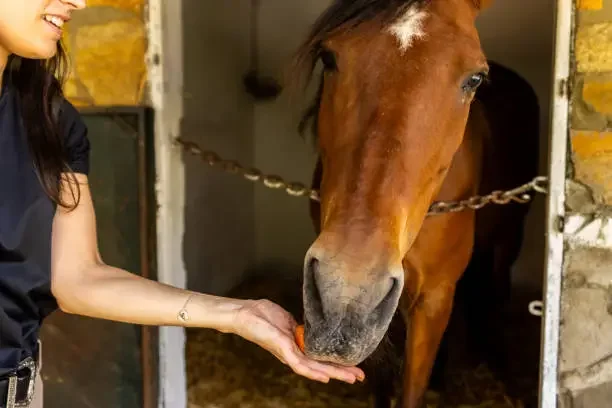Understanding Horse Feed Labels
Choosing the right feed for your horse shouldn’t feel overwhelming, but with shelves full of bags, tubs, mixes and supplements (all claiming to be “best” or “complete”), it’s easy to feel lost. Understanding nutrition starts with understanding what’s actually in the bag, and that begins with learning how to read a feed label.
Heat Stress & Dehydration in Horses: the Hidden Summer Risks
There’s something irresistible about spending a bright, sunny day in the saddle, whether you’re training, competing, or simply exploring the trails. Yet beneath the pleasant atmosphere lies a very real challenge for horses: the combined impact of heat, humidity, dehydration, and fatigue. Horses produce enormous amounts of heat during exercise, up to sixty times more than at rest, and their ability to release that heat depends entirely on the environment around them. As riders, understanding this delicate balance is essential because even a fit, well‑trained horse can quickly become overwhelmed.
Stomach Ulcers: the Hidden Challenge
No horse is completely immune to gastric ulcers, and the numbers are startling. Studies show they affect 37% of pleasure horses, 40% of Western performance horses, and up to 93% of racehorses in training. Even foals aren’t spared, with rates ranging from 20% to 51%, while show and sport horses sit at 54% and 64% respectively.
A Guide to Treats: Safe Choices, Training Tips, and Enrichment Ideas
When it comes to caring for our horses, treats are more than just a tasty snack; they’re a powerful tool for training, enrichment, and building a positive relationship. But not all treats are created equal, and it’s important to know which ones are safe, how to use them effectively, and what to avoid.




